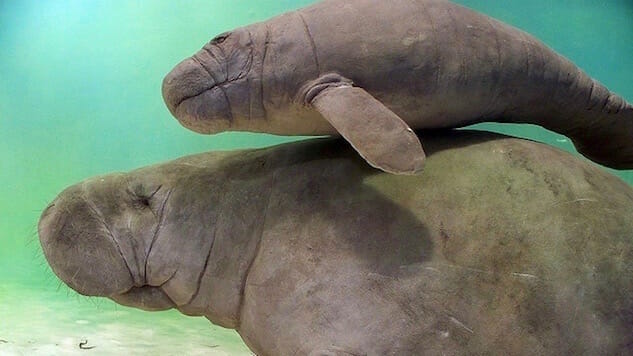The Manatee May No Longer Be Endangered

As one of the first animals protected by the federal government in 1966, the manatee has become the face of endangered species. But efforts by conservation groups and the government may be lifting it from “endangered” to “threatened”.
A recent aerial survey conducted by the Florida Fish and Wildlife Conservation Commission concluded that there are at least 6,620 “sea cows” swimming in the waters around Florida, an all-time high.
Some view this increase in population as a reason to move the creatures to the “threatened” classification, but others believe that it is too soon to decrease their protections. The Florida manatees have been under government protection for 50 years and continue to experience hardships, sometimes even because of their growing numbers.
Clare Aslan, a community ecologist and conservation biologist at Northern Arizona University, explained that “a downlisting reduces the protections offered to a species,” often allowing less stringent regulations for handling the creatures.
Manatees are still vulnerable to dangerous human interactions: most manatees bear scars from boat propellers on their backs and 104 of the 520 manatee deaths reported in 2016 were attributed to boats. These creatures are also susceptible to changing weather and the decreasing number of natural sources of warmth in their shrinking environment drive them to seek shelter from cold water in warm water running from power plants.
-

-

-

-

-

-

-

-

-

-

-

-

-

-

-

-

-

-

-

-

-

-

-

-

-

-

-

-

-

-

-

-

-

-

-

-

-

-

-

-








































